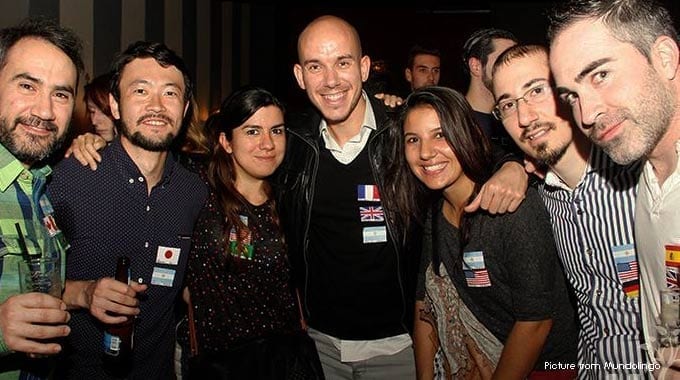Spanish Exchange with Native Speakers
For a lot of people who come to Buenos Aires to learn and improve Spanish, they want to do more than just grasp correctly all the necessary grammar and tenses (yes, there are quite a few of them!) in the classrooms. They also want to put their knowledge into action and practice their Spanish communication skills with native speakers. However, sometimes it turned out to be harder than one thought since making local friends require a decent amount of time and courage to strike up conversations with strangers!
Given many people want to make new friends but do not know how to go about doing it, there are actually many organized language exchange events available weekly in the city. Below are a few of them for you to consider and they are suitable for all levels.
Spanglish
They are pretty much the most well-known and the most established in offering such activities. As its name entails, they focus on English and Spanish exchange, where Argentines who want to practice their English will be paired up with foreigners who want to practice their Spanish. Participants will take turn conversing with different partners according to the designated times for each language. They currently meet 3 times a week in Recoleta and Palermo, and there’s a cover charge. This is a good option for those who are a little bit shy and would prefer a more organized format to break the ice.
Mundo Lingo
Their intercambio de idioma events are not only restricted to the typical English<>Spanish, but also open to other languages. Each participant will be given country flag stickers indicating which language(s) he/she speaks and wants to practice. This way, it could be an exchange of any combinations you can think of: French <> Spanish, Portuguese <> Spanish, Chinese <> Spanish or even Russian <> Spanish. They currently meet twice a week and are free-of-charge!
Alles Gut Tandem
With the increase of German-native speakers in town learning Spanish, which in turn gives Argentines, who are studying German, a great (and not easy to come by) opportunity to practice their German with a native speaker, Alles Gut was born! They currently meet on Fridays and it’s free!
Buenos Aires Swap
You have probably noticed that all of the language exchange functions so far take place in Palermo and Recoleta. This new English<>Spanish exchange is a great addition to the mix because they meet up in San Telmo. They currently meet every Tuesday and has a cover charge that includes 1 drink.
For those who have the time and prefer DIY, check out these sites to find your own language exchange partner:
Couchsurfing – within the Buenos Aires forum, they have a language exchange group where you can post your request or reply to others.
Conversation Exchange
Now that you know there are choices out there, you no longer need to only rely on the daily chit chat you have with the taxi driver or your portero (doorman)!





